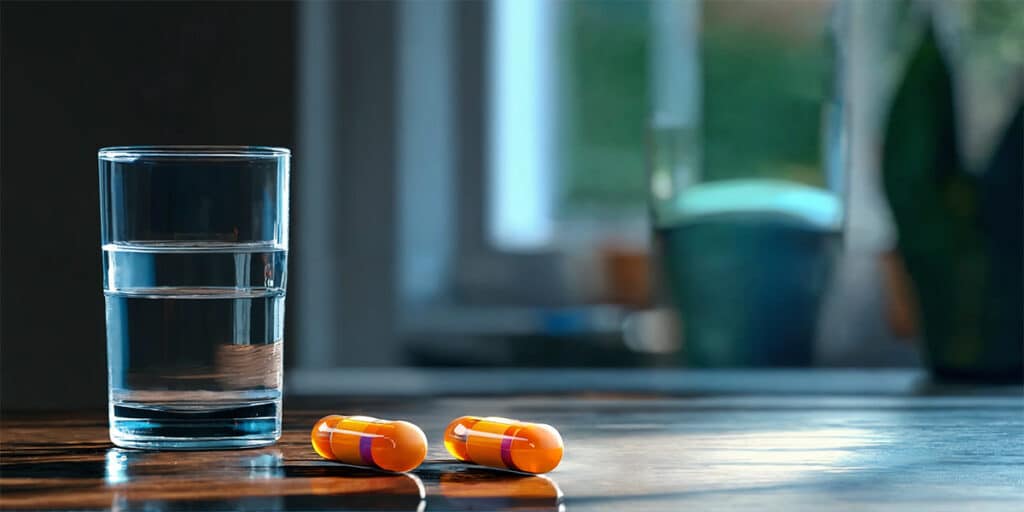As we age, our bodies undergo various changes, and oral sensitivity is one of the more common yet overlooked issues that can significantly affect daily life. Seniors, particularly those with dentures and implants, often experience heightened sensitivity and discomfort, which can impact their diet, social interactions, and overall quality of life.
This guide delves into the world of oral care specifically tailored for seniors, highlighting top desensitizing products that provide relief and enhance daily comfort.
Understanding Oral Sensitivity in Seniors
Oral sensitivity can manifest as pain, discomfort, or a tingling sensation triggered by hot, cold, sweet, or acidic foods. This condition may be exacerbated by dental prosthetics such as dentures and implants. Factors contributing to increased oral sensitivity include gum recession, enamel wear, and changes in salivary flow as we age.
Recognizing the importance of managing this condition is crucial as it not only affects physical health but also emotional well-being. Seniors who experience less oral discomfort are more likely to maintain a nutritious diet and engage in social activities, thereby enhancing their overall lifestyle.
Top Desensitizing Products for Seniors
The market offers a variety of products designed to reduce oral sensitivity. These range from specialized toothpastes and mouthwashes to more innovative solutions like gels and sprays. Here, we explore several products that have been identified through research and user testimonials as particularly effective for seniors.
Desensitizing Toothpaste: These toothpastes contain ingredients such as potassium nitrate or stannous fluoride, which help block the transmission of pain signals from the surface of the tooth to the nerve. Brands like Sensodyne ProNamel are specifically designed for sensitive teeth and can provide significant relief with regular use.
Fluoride Rinses and Gels: Fluoride treatments can strengthen enamel and reduce the transmission of discomfort signals. Products such as ACT Anticavity Fluoride Rinse can be used daily to provide an extra layer of protection against sensitivity.
Soft Toothbrushes: Using a soft-bristled toothbrush can help minimize gum erosion and irritation. The Nimbus Microfine is an example of a toothbrush specifically designed to offer gentle yet effective cleaning for sensitive gums.
Oral Gels: Gels like Orajel can be applied directly to the gums or teeth to provide immediate relief from acute pain and discomfort, making them ideal for sudden sensitivity spikes.
Natural Remedies: Products such as clove oil, known for its natural anesthetic properties, can be applied to the gums to alleviate pain. Aloe vera gel is another gentle alternative that can soothe sensitive gums without harsh chemicals.
The 5 Best Desensitizing Products for Seniors
Managing oral sensitivity effectively is crucial for seniors, especially those with dental prosthetics like dentures and implants. Here’s a closer look at some of the top desensitizing products specifically tailored for seniors, designed to provide relief and enhance daily oral comfort.
Sensodyne ProNamel Toothpaste
Sensodyne ProNamel is specifically formulated to help protect against sensitivity and to re-harden softened enamel. It contains potassium nitrate, which helps soothe the nerves in exposed dentin, providing relief from pain caused by sensitive teeth.
Benefits for Seniors: This toothpaste is gentle on the enamel and helps maintain healthy gums, which is particularly important for seniors who may have receding gums or weakened enamel due to age.
For best results, seniors are advised to use Sensodyne ProNamel twice daily, brushing gently but thoroughly, to ensure all areas of sensitivity are covered.
ACT Anticavity Fluoride Rinse
ACT Anticavity Fluoride Rinse is a mouthwash designed to help reduce dental sensitivity by strengthening tooth enamel with its fluoride formula. It’s alcohol-free, which prevents irritation of sensitive mouths.
Benefits for Seniors: The fluoride helps protect against root caries—a common issue in older adults—and strengthens enamel to reduce sensitivity. Its formula also includes components that are beneficial for dry mouth, a frequent concern among the elderly.
Seniors should use ACT rinse daily, swishing the mouthwash around the mouth for one minute before spitting it out. This should be done at a different time from brushing to maximize fluoride exposure throughout the day.
Orajel Oral Pain Reliever Gel
Orajel is a topical gel that provides immediate pain relief for severe toothaches and gum discomfort by numbing the area. It contains benzocaine, an effective local anesthetic.
Benefits for Seniors: Orajel can be particularly useful for acute pain relief from conditions such as gum inflammation or temporary irritation from dentures or implants.
Apply a small amount of gel directly onto the sensitive gum or tooth area up to four times a day. It’s crucial for seniors to follow the dosage instructions carefully to avoid overuse.
Nimbus Microfine Toothbrush
The Nimbus Microfine is a toothbrush designed with extra-soft bristles for effective and gentle cleaning, ideal for sensitive teeth and gums.
Benefits for Seniors: Its micro-fine bristles allow for a thorough clean without aggravating sensitive teeth and gums, making it suitable for seniors with gum recession or those who are prone to brushing too hard.
Seniors should use the Nimbus Microfine toothbrush twice daily, applying gentle pressure to clean all surfaces of the teeth and gums thoroughly without causing irritation.
Natural Remedies: Clove Oil and Aloe Vera Gel
For those who prefer natural solutions, clove oil and aloe vera offer effective pain relief and soothing properties. Clove oil acts as a natural anesthetic, while aloe vera gel can help soothe inflamed gums.
Benefits for Seniors: These natural options provide a chemical-free alternative, which is advantageous for seniors looking to avoid additives and preservatives in their oral care products.
Apply clove oil sparingly to the affected area for pain relief. Aloe vera gel can be applied directly to the gums or used as a mouth rinse after being diluted with water.
By incorporating these desensitizing products into their oral care routine, seniors can significantly alleviate discomfort associated with dental sensitivity, ensuring a more comfortable and enjoyable daily experience. Each product offers unique benefits, allowing individuals to choose solutions that best meet their specific needs and preferences.
| Product Type | Product Name | Key Ingredient | Primary Benefit | Usage Tips | User Rating |
|---|---|---|---|---|---|
| Toothpaste | Sensodyne ProNamel | Potassium Nitrate | Reduces tooth sensitivity | Use twice daily for best results | ★★★★☆ |
| Mouthwash | ACT Anticavity Fluoride Rinse | Sodium Fluoride | Strengthens tooth enamel | Swish daily, separate from brushing | ★★★★★ |
| Oral Gel | Orajel | Benzocaine | Immediate pain relief | Apply directly to the gums as needed | ★★★☆☆ |
| Toothbrush | Nimbus Microfine | Extra-soft bristles | Gentle on sensitive gums | Brush gently twice daily | ★★★★☆ |
| Natural Remedy | Clove Oil | Eugenol | Natural anesthetic properties | Apply sparingly to the affected area | ★★★★☆ |
Optimizing Your Oral Care Routine with Desensitizing Products
Incorporating the right desensitizing products into your daily oral hygiene regimen can significantly alleviate the discomfort associated with dental sensitivity. Here’s a detailed guide on how to effectively use these products to achieve the best results:
Daily Use of Desensitizing Toothpaste
Using a desensitizing toothpaste such as Sensodyne ProNamel can be a game-changer for those dealing with sensitivity. To maximize its benefits:
Brushing Technique: Apply a pea-sized amount of toothpaste on a soft-bristled toothbrush. Gently brush all areas of your teeth, focusing on sensitive spots, for at least two minutes. This technique helps ensure that the active ingredients have sufficient contact time with your teeth to be effective.
Frequency: Brush twice daily, once in the morning and once before bedtime, to maintain consistent desensitization and protect your teeth from sensitivity triggers throughout the day.
Incorporating Fluoride Mouthwash
Fluoride mouthwashes, like ACT Anticavity Fluoride Rinse, strengthen tooth enamel and can help reduce sensitivity:
Timing: Use the mouthwash at a different time from brushing—perhaps after lunch or in the afternoon. This spreads fluoride exposure throughout the day, providing continuous protection against sensitivity.
Method: Swish the mouthwash around your mouth for about one minute, ensuring it reaches all areas. Do not rinse your mouth with water immediately after; instead, allow the fluoride to sit on the enamel for a longer period to enhance its efficacy.
Targeted Relief with Oral Gels
For acute sensitivity or sudden flare-ups, oral gels like Orajel can provide quick relief:
Application: Apply the gel directly to the sensitive tooth or gum area using a clean fingertip or cotton swab. Follow the package directions regarding the amount of gel to use and the frequency of application.
Precautions: Since these gels often contain strong anesthetics like benzocaine, it’s important to use them sparingly and only as needed to avoid overuse, which can lead to further oral health issues.
Using Natural Remedies as Supplements
For those who prefer a more natural approach or wish to avoid chemicals, remedies like clove oil and aloe vera gel are effective alternatives:
Clove Oil: Apply a small amount of clove oil to a cotton swab and dab it gently on the sensitive area. Clove oil has natural anesthetic properties that can numb the discomfort temporarily.
Aloe Vera Gel: Use aloe vera gel to soothe inflamed gums. You can apply it directly to the gums or use it as a mouth rinse by mixing a small amount of gel in water.
Top Desensitizing Products for Seniors: Key Takeaways
Selecting the right oral care products is crucial for effectively managing sensitivity. It’s important to understand your specific triggers—be it hot, cold, sweet, or sour substances—and choose products that are designed to address these specific issues. For instance, if cold drinks trigger your sensitivity, look for toothpastes and mouthwashes that are specifically formulated to protect against this type of sensitivity. Consulting with a dental professional can provide further guidance and ensure that the products you choose are both effective and safe for your particular oral health needs.
Maintain Regular Dental Check-ups
For seniors, maintaining oral health involves more than just daily brushing and flossing; regular dental check-ups are essential. These visits allow your dentist to monitor the health of your teeth and gums, provide professional cleanings, and make adjustments to any dental appliances you may be using. Regular professional input is invaluable in preventing the progression of sensitivity and addressing any new dental issues as they arise. These check-ups can also be an opportunity to discuss the effectiveness of your current desensitizing products and possibly explore new options.
Stay Consistent
Consistency is the key to managing oral sensitivity effectively. Incorporating desensitizing products into your daily oral hygiene routine and using them as directed can make a significant difference in their effectiveness. Whether it’s applying a desensitizing gel at night or using a specific toothpaste after every meal, regular use helps build up protection over time, enhancing comfort and reducing episodes of discomfort.
By embracing these key strategies—wisely choosing products, maintaining regular dental visits, and staying consistent with your care routine—you can effectively manage oral sensitivity. This approach not only alleviates discomfort but also contributes to a better overall quality of life. This guide aims not just to provide solutions but to empower you with the knowledge to manage oral health proactively. With the right products and practices, managing oral sensitivity can become a manageable part of your daily routine, ensuring a happier, healthier lifestyle.
Top Desensitizing Products for Seniors: Your FAQs Answered
What are desensitizing products and how do they help seniors?
Desensitizing products help reduce dental sensitivity by blocking pain signals to the nerves or by strengthening the tooth enamel. These products are particularly beneficial for seniors who may experience increased sensitivity due to receding gums or worn enamel.
How often should I use desensitizing toothpaste?
It is recommended to use desensitizing toothpaste twice daily, just like regular toothpaste, to maintain effectiveness and provide continuous relief from sensitivity.
Can mouthwash help with tooth sensitivity?
Yes, fluoride mouthwashes can help reduce tooth sensitivity by strengthening the enamel and providing a protective barrier over sensitive areas of the teeth.
Are there any side effects of using desensitizing gels?
Desensitizing gels, especially those containing active ingredients like benzocaine, should be used sparingly. Overuse can sometimes lead to further sensitivity or irritation. Always follow the product instructions carefully.
What should I look for in a toothbrush for sensitive teeth?
Look for toothbrushes labeled as soft or extra-soft. These toothbrushes have softer bristles that are gentle on the gums and sensitive areas of the teeth, reducing irritation while effectively cleaning.
How quickly can I expect relief from sensitivity after starting to use these products?
Some products, like desensitizing gels, can offer immediate relief, while others, such as toothpastes and mouthwashes, may require several uses before you notice a reduction in sensitivity.
Can natural remedies be effective against dental sensitivity?
Natural remedies like clove oil and aloe vera gel can provide temporary relief from dental pain and sensitivity, though they may not be as long-lasting as formulated dental products.
Is it necessary to consult a dentist before using desensitizing products?
It is advisable to consult with a dentist before starting any new dental treatment, especially if you have significant sensitivity, to ensure that you choose the most effective and safe products for your specific needs.
How do desensitizing products interact with other dental treatments?
Generally, desensitizing products can be used alongside other dental treatments, but it’s important to coordinate with your dentist to avoid any potential interactions, especially if undergoing restorative procedures.
Where can I buy these desensitizing products for seniors?
Desensitizing products are widely available at pharmacies, supermarkets, and online retailers. Your dentist can also recommend specific brands and formulations that might be best suited for your needs.
References
“Clinical Evaluation of the Use of Desensitizing Agents in the Management of Dentinal Hypersensitivity” by Eleonora Fambrini, Marco Miceli, Marco Pasini, and Maria Rita Giuca. This study measures dentinal hypersensitivity in adult patients after the use of domiciliary desensitizing devices.
“The Effect of Three Desensitizing Toothpastes on Dentin Tubule Occlusion”. This study compares the efficacy of three commercial desensitizing toothpastes on dentin tubule occlusion.
“Evaluation of the Effectiveness on Dentin Hypersensitivity of Sodium Monofluorophosphate and Arginine”. This study evaluates the effectiveness of sodium monofluorophosphate and arginine on dentin hypersensitivity.








